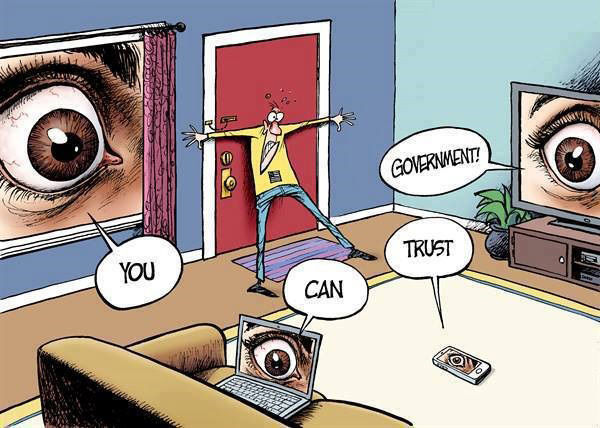Table of Contents
Last week, with little fanfare, and near-zero media commentary, Australia slid deeper into a surveillance state.
The occasion was the passing of the The Surveillance Legislation Amendment (Identify and Disrupt) Bill 2021. The final bill was passed after just 24 hours. Major media outlets like the ABC ignored it.
The Australian Senate has passed a controversial law giving new and powerful surveillance powers to law enforcement agencies, including 60 amendments proposed by the House of Representatives.
After The Surveillance Legislation Amendment (Identity and Disrupt) Bill [2021] is signed into law, the Australian Criminal Intelligence Commission (ACIC) and Australian Federal Police (AFP) will have three new controversial powers to handle online crime.
The two law enforcement agencies will have “data disruption power,” whose purpose is to prevent “continuation of criminal activity by participants, and be the safest and most expedient option where those participants are in unknown locations or acting under anonymous or false identities.”
What “data disruption power” really means is that the Feds will be able to (covertly) add, copy, delete or alter data on your computer or on a network. They can also (covertly) take over your online accounts.
What this means in practice is that they can secretly monitor supposedly private communications, hack networks with fake data, or take over someone’s online identity and pose as them. Police will also be able to covertly enter premises to obtain access to, copy data from, or even remove computers.
These are incredibly invasive powers which make an old-fashioned wiretap look quaint.
Yet they are subject to even less scrutiny than a wiretap or search warrant.
To obtain permission for a wiretap, police must apply to a magistrate or judge. Under the new bill, permission can be granted by merely a member of the Administrative Appeals Tribunal.

This is the most momentous infringement of Australians’ online privacy since 2017, when the government passed laws mandating that our phone and internet metadata be stored for two years. When that bill passed, a group of minor party and independent MPs – the Greens, Motoring Enthusiast senator Ricky Muir, Liberal Democrat senator David Leyonhjelm and independents Jacqui Lambie, Glenn Lazarus, Nick Xenophon and John Madigan – tried in vain to stop it being passed.
To their credit, the Greens once again tried unsuccessfully to amend the “Identify and Disrupt”, so that permission could only be granted by a Federal or Supreme Court judge.
Critics, including Victoria’s Senator Lidia Thorpe, pointed out that such power could be used to target a broad range of people – from political activists to young people downloading content from the internet.
“No one is safe under these new laws,” Sen. Thorpe said when the bill was first proposed last year. “It will affect grassroots communities across the country, it will affect children. It will affect anybody who downloads a movie illegally over the internet – they could go to jail for five years”[…]
Some of the recommendations by the House of Representatives did make some changes that shield journalism. But, many activists and critics still feel the bill’s language does not protect vulnerable internet users.
“The scope of the new powers is disproportionate compared to the threats of serious and organized cybercrime to which they are directed,” Sen. Thorpe said on Wednesday.
“There is a lack of evidence justifying the need for warrants of this nature, beyond those already available… no other country in the Five Eyes alliance has conferred powers on its law enforcement agency that this bill will.”
Reclaim the Net
I’ve lambasted Lidia Thorpe many times on The BFD, but credit where it’s due.
World media were shocked at footage of police firing tear gas and rubber bullets in Melbourne last week. Was this really the Australia they thought they knew?
If only they knew.
Please share this article so that others can discover The BFD








